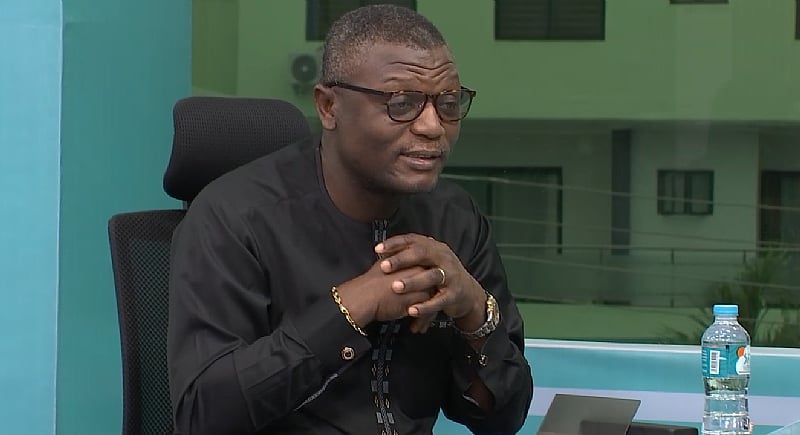Kofi Adams, the Member of Parliament for Buem, has outspokenly criticized the Ghanaian government’s handling of illegal mining, commonly known as galamsey. During an interview on The Big Issue, a political discussion program on Channel One TV, Adams emphasized his view that the New Patriotic Party (NPP) administration has failed significantly in addressing this persistent issue. He accused the government not only of ineffectiveness but also of lacking genuine commitment to resolving the ongoing crisis surrounding illegal mining activities in the country. This criticism reflects growing public discontent towards the government’s ability to combat illegal mining and protect the environment, both of which have far-reaching implications for Ghana’s social and economic landscape.
At the core of Adams’ argument is a portrayal of the government’s approach to illegal mining as deeply flawed. He described the current administration’s efforts as a “grand failure,” asserting that the ruling party’s actions—or rather, their inactions—indicate a fundamental disinterest in genuinely tackling the challenges posed by galamsey. Adams pointed out that since the NPP took office in 2017, it has shown little resolve to confront the issue, citing various incidents that exemplify this lack of commitment. His assertions highlight a disconnect between the government’s promises to combat illegal mining and the reality of continuing environmental degradation and social unrest resulting from galamsey activities.
Adams further elaborated on the perceived failure of the government by referencing a recent environmental prayer demonstration organized by the Catholic Church, expressing that such actions underscore the severity of the situation. This event serves as an indictment of the government’s inability to protect the environment, leading citizens and religious organizations to take matters into their own hands. He criticized the administration for its response to key figures involved in galamsey, particularly mentioning the case of Aisha Huang, an illegal miner whose arrest was downplayed by government officials. Adams quoted Senior Minister Osafo-Maafo’s comments on the lack of merit in prosecuting individuals like Huang, suggesting such views undermine any substantial effort to confront galamsey.
Additionally, Kofi Adams referenced internal conflicts within the government, highlighting how senior officials have recognized threats to the fight against galamsey yet failed to take decisive action. Specifically, he questioned President Akufo-Addo for allowing a prominent figure, the late Sir John, to remain in a position of influence despite warnings from Prof. Frimpong Boateng about his potential to hinder progress in the fight against illegal mining. This situation exemplifies the larger systemic issues within the governing body, as Adams implies that self-serving interests may override the commitment to public welfare and environmental protection.
The consequences of illegal mining extend far beyond simple economic transactions; they pose significant risks to Ghana’s ecological balance, public health, and social stability. Kofi Adams’ critique aptly captures the frustrations of many Ghanaians who have witnessed the ongoing devastation linked to galamsey activities. The government’s failure to act decisively against illegal mining has resulted in a loss of public trust and dissatisfaction with leadership, fostering a climate where illegal operations can continue unchecked. As Adams emphasizes, the broader implications of such neglect not only threaten the environment but also the livelihoods of those who depend on sustainable practices in agriculture and tourism.
In conclusion, Kofi Adams presents a compelling argument that critiques the NPP government’s ineffectiveness and lack of commitment in addressing the widespread issue of illegal mining in Ghana. By pointing out specific incidents, internal conflicts, and public actions, Adams sheds light on the multifaceted challenges posed by galamsey and the government’s apparent inability to grapple with these complexities. His commentary resonates with a growing sentiment among citizens who seek accountability and decisive action from their leaders to safeguard Ghana’s environmental integrity and overall future viability. As discussions around galamsey continue, the demand for genuine commitment and proactive measures from the government remains paramount in the eyes of many Ghanaians.


